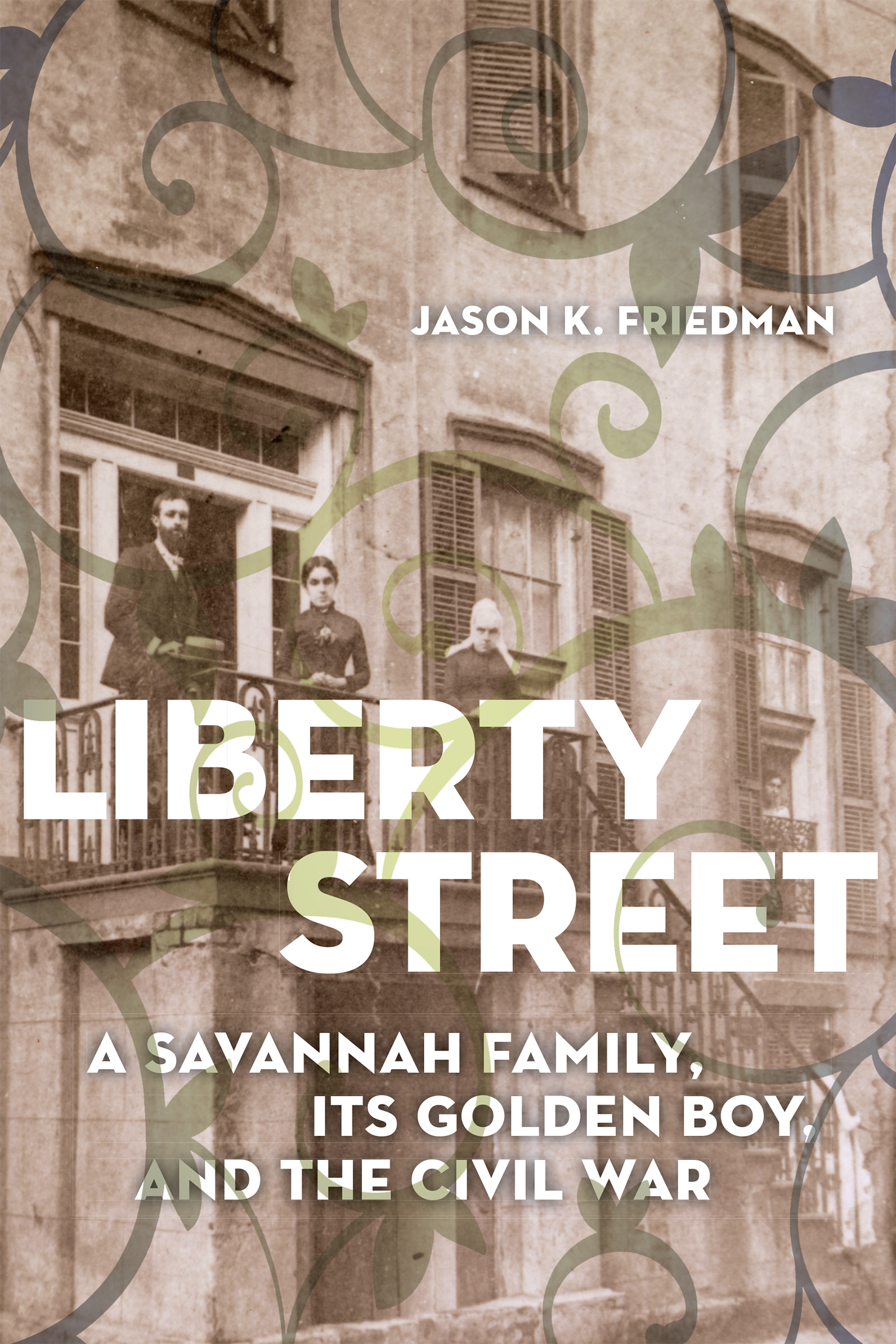In 2016, Jason K. Friedman, a fiction writer from Savannah, Georgia, then living in San Francisco, decided to buy an apartment in an old townhouse in the historic district of his native city. He was drawn in by the name given for the building—the Solomon Cohen townhouse. Not many of the celebrated historic homes of Savannah carry Jewish names. The apartment seemed like a solid investment, since he and his husband could rent it out to tourists. From the West Coast, they put in a bid, sight unseen.
When Friedman first visited his new property, he opened a kitchen drawer and found a document with details of Cohen’s colorful biography—talented lawyer, founder and director of railroads and banks, influential Georgia politico and reluctant secessionist, real-estate impresario who built the townhouse a decade after the end of the Civil War. Friedman became particularly fascinated, however, by Solomon’s only son, Gratz, the first Jewish student at the University of Virginia, a sensitive poet, who was apparently gay. After years of avoiding enlistment in the Confederate Army on account of a debilitating foot injury, Gratz finally leapt into the fray only to die in battle just weeks before Appomattox. Friedman decided to dig up everything he could about the brief life of Gratz Cohen, an intriguing and impressive young man, confused by his own emotions and overwhelmed by the enormity of the war.
Liberty Street is an unusual book. (It expands on an essay Friedman wrote for Moment Magazine a few years ago.) Though published by the University of South Carolina Press, the author is not an academic, and it’s not a scholarly text but rather a combination of memoir, travelogue, and amateur historical exhumation. Wherever the record comes up short, Friedman glides into a more novelistic mode. These transitions can be jarring—and the absence of citations or an index is sometimes frustrating—but the brazenly convention-defying mixture ends up serving the story well.
Digging through Gratz Cohen’s letters, journals, and poetry, as well as obituaries and other documents that relate to him, Friedman comes up with some fairly astonishing finds. Himself a gay Jewish son of Savannah with a relationship with his own father as complicated as Gratz’s with his—“the pragmatic businessman father and the romantic idealist son”—the author comes to see himself in his subject and wrestles with the complications that that identification entails. Touring various archives and museums around the South that have some connection to Cohen, Friedman sometimes introduces himself as a relative. The falsehood seems easier to explain than the reality and in some sense, perhaps, is true. “This was a house that came with a story,” Friedman writes at the beginning of his search, “one that was also my own.”
